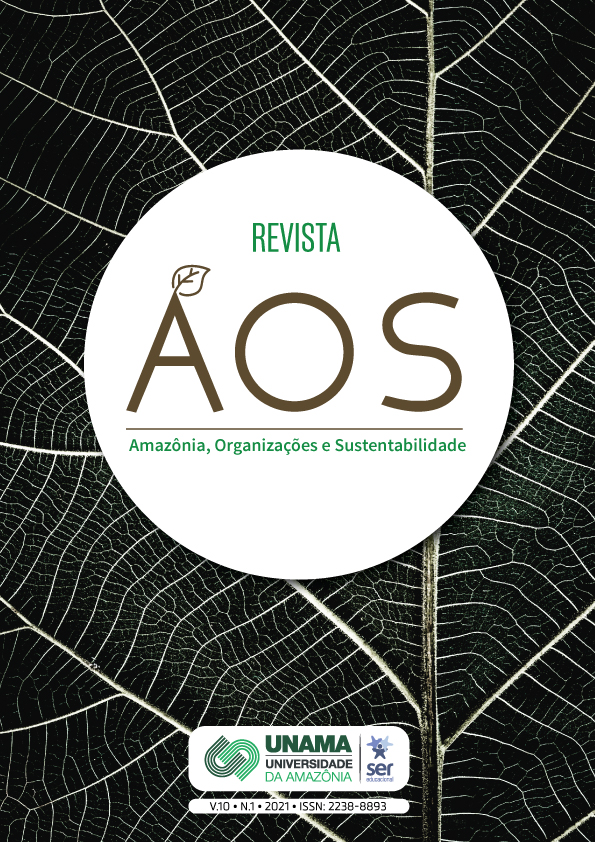Organizational Field And Institutional Pillars: understanding the pesticide field in Brazil and India ## Campo Organizacional e Pilares Institucionais: discussão para entender o campo dos pesticidas no Brasil e Índia
DOI:
https://doi.org/10.17648/aos.v10i1.1878Keywords:
Institutional Theory, Pesticides, AgricultureAbstract
Este texto teve como objetivo discutir conceitos que constituem e atravessam a teoria institucional de modo a construir uma epistemologia estruturalista que possa oferecer subsídios para futuros pesquisadores que desejem estudar a evolução do campo de pesticidas no Brasil e na Índia. Especificamente, delineamos os conceitos campo organizacional e pilares institucionais para propor uma agenda de pesquisa que busque investigar conflitos e ações de multinacionais do agronegócio, políticos, agricultores familiares, agricultores pequenos, médios e grande porte, pesquisadores de diferentes áreas e organizações do terceiro setor a fim de legitimar suas definições sobre os pesticidas. Isso é importante, pois, de um lado, os pesquisadores da área da saúde poderiam definir os pesticidas como prejudiciais à saúde humana, sugerindo, assim, que o governo proíba sua comercialização. Por outro, com o objetivo de sensibilizar os políticos e a sociedade, as multinacionais do agronegócio poderiam definir os pesticidas como tecnologias fundamentais para proporcionar alta produtividade e segurança alimentar à população.
ABSTRACT
This paper aimed to discuss concepts that constitute and traverse institutional theory, so as to build a structuralist epistemology that might offer support to future researchers that intend to study the evolution of the pesticide fi eld in Brazil and India. Specifically, we defi ned the concepts of organizational fi eld and institutional pillars. This was made in order to propose a research agenda that seeks to investigate conflicts and actions taken by agribusiness multinationals, politicians, family farmers, small, medium and large agriculturists, researchers from different fields and organizations of the third sector, thus legitimizing their definitions about the pesticides. This is important because health researchers could define them as harmful to human health, thus suggesting that the government should forbid their commercialization. On the other hand, aiming at sensitizing politicians and society, agribusiness multinationals could define pesticides as fundamental technologies for providing high productivity and food safety to the population.
Downloads
Published
Issue
Section
License
Autores que publicam nesta revista concordam em manter os direitos autorais e concedem à revista o direito de primeira publicação, com o trabalho simultaneamente licenciado sob a Licença Creative Commons Attribution (CC-BY) que permite o compartilhamento do trabalho com reconhecimento da autoria e publicação inicial nesta revista.
A Revista AOS compromete-se a contribuir com a proteção dos direitos intelectuais do autor. Nesse sentido:
- adota a licença Creative Commoms BY (CC-BY) em todos os textos que publica, exceto quando houver indicação de específicos detentores dos direitos autorais e patrimoniais;
- adota software de detecção de similaridades;
- adota ações de combate ao plagio e má conduta ética.


